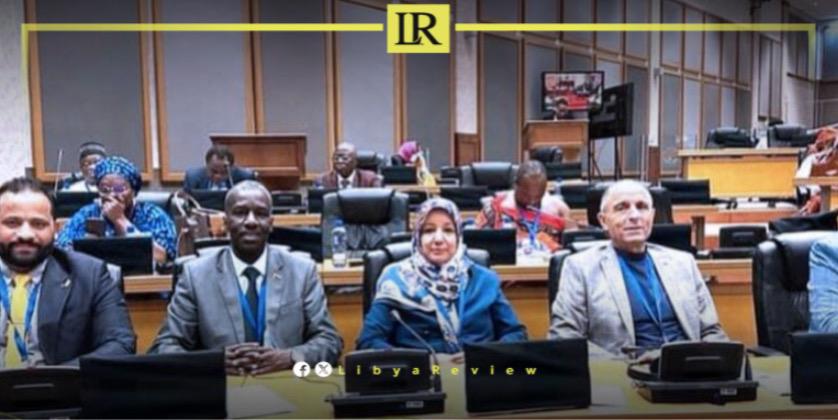Four members of the Libyan House of Representatives, Yusuf Al-Fakhri, Salem Gnan, Abdulqader Yahya, and Asma Al-Khoja, participated in the closing session of the third ordinary session of the sixth legislative term of the African Parliament.
The session included the presentation, discussion, and adoption of several resolutions. Among these were resolutions on building flexible educational systems to increase access to inclusive education in Africa, the adoption of a model law for cooperatives in Africa, and the consideration of the African Parliament’s performance report.
The session also issued a series of recommendations regarding peace and security and the enhancement of freedom of movement within the African continent, according to a statement from the House of Representatives.
The third ordinary session of the sixth legislative term of the African Parliament, which concluded yesterday, Friday, began on June 21 in Midrand, South Africa.
Libya has been in chaos since a NATO-backed uprising toppled longtime leader Muammar Gaddafi in 2011. The county has for years been split between rival administrations.
Libya’s economy, heavily reliant on oil, has suffered due to the ongoing conflict. The instability has led to fluctuations in oil production and prices, impacting the global oil market and Libya’s economy.
The conflict has led to a significant humanitarian crisis in Libya, with thousands of people killed, and many more displaced. Migrants and refugees using Libya as a transit point to Europe have also faced dire conditions.
The planned elections for December 2021 were delayed due to disagreements over election laws and the eligibility of certain candidates. This delay has raised concerns about the feasibility of a peaceful political transition.
Despite the ceasefire, security remains a significant concern with sporadic fighting and the presence of mercenaries and foreign fighters. The unification of the military and the removal of foreign forces are crucial challenges.


